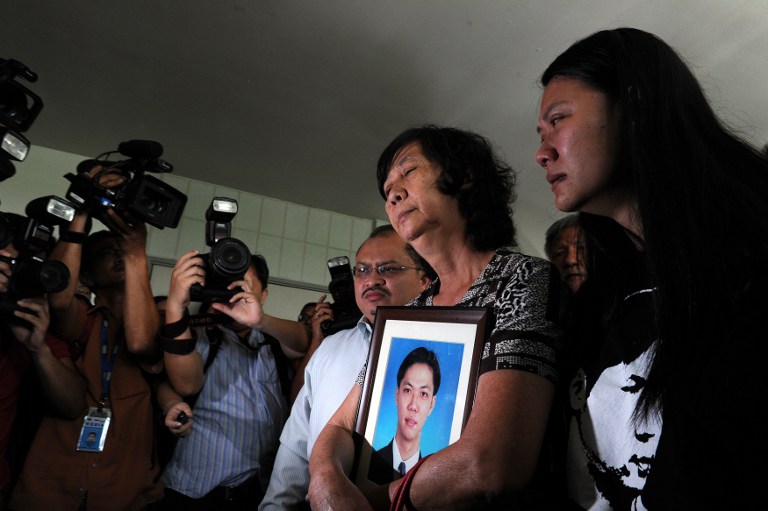KUALA LUMPUR, July 1 — The federal government last week announced a Royal Commission of Inquiry (RCI) on the Bank Negara Malaysia (BNM) foreign exchange scandal in the 1980s and 1990s.
Here, we examine high-profile RCIs from recent years and their outcomes.
1. Illegal immigrants in Sabah (2012-2013)
On September 6, 2012, a five-man panel chaired by ex-Chief Judge of Sabah and Sarawak Tan Sri Steve Shim was appointed to investigate "Project IC" in which citizenship was allegedly given unlawfully to illegal immigrants in Sabah during the Mahathir administration for electoral support.
After the testimony of 211 witnesses and combing through more than 5,000 pages of evidence, the panel concluded that “Project IC” probably existed. It recommended the formation of a permanent secretariat along with either a management committee or a consultative council to address the issue of illegal immigration in Sabah.
As of April, opposition lawmakers were still questioning in the Sabah legislative assembly whether the technical committee formed in February 2015 has produced a report for the permanent secretariat.
2. The death of Teoh Beng Hock (2011)
On January 26, 2011, a five-man panel chaired by Federal Court judge Tan Sri James Foong Cheng Yuen was convened to investigate the death of political aide Teoh Beng Hock, who was found dead outside the Selangor Malaysian Anti-Corruption Commission’s (MACC) office after overnight questioning as a witness from July 15-July 16, 2009.
The panel concluded that Teoh was driven to commit suicide by the MACC officers’ “aggressive, relentless, oppressive and unscrupulous interrogation”. It recommended improved training and facilities for the MACC as well as legal safeguards to prevent a repeat.
The MACC responded by setting up the Executive Transformation Committee. Allegations of ill-treatment by MACC officers fell from 12 cases in 2009 to one each in the following two years, two in 2012 and none in 2013 and 2014.
Nobody was ever prosecuted for Teoh’s death. Two of the three officers involved were later promoted.
3. The VK Lingam video (2007-2008)
On December 12, 2007, a five-man panel chaired by ex-Chief Judge of Malaya Tan Sri Haidar Mohamed Noor was formed to examine a video clip allegedly of lawyer Datuk VK Lingam involved in the manipulation of judicial appointments.
The panel concluded the clip and conversation to be genuine. It recommended the formation of a Judicial Appointments Commission (JAC) and for the Chief Judge of Malaya and Chief Judge of Sabah and Sarawak to be made members of the Judicial and Legal Service Commission, where appointments are made by the Yang diPertuan Agong.
The JAC to select and propose candidates as judges was established on February 2, 2009, but civil society and the Malaysian Bar have continued to call for further improvements to the commission for greater judicial independence.
Lingam was disbarred on November 6, 2015, but he has since filed a legal challenge against the Malaysian Bar’s Disciplinary Committee’s decision that he was guilty of interfering with judicial appointments. The case will be heard this August at the High Court.
4. Police reforms (2004-2005)
In 2004, the Abdullah administration formed the 16-member panel chaired by ex-Chief Justice of Malaysia Tun Mohammed Dzaiddin Abdullah and with ex-Inspector-General of Police Tun Mohammed Hanif bin Omar as deputy.
It was tasked with examining the decline of public confidence in the police, alleged corruption in the force, and possible procedural improvements for the agency.
The panel concluded that police had faced nine major challenges, with feedback indicating widespread corruption and extensive human rights abuse, among others, within the force.
It made 125 recommendations based on 10 strategic thrusts (including crime reduction, police corruption eradication and human rights compliance, modernisation, resource management) to reform the police, along with the controversial Independent Police Complaints and Misconduct Commission (IPCMC).
The police rejected the proposed independent oversight of the IPCMC. Putrajaya later formed the Enforcement Agency Integrity Commission (EAIC) that does not have prosecutorial powers.
In 2015, civil society groups asked for an update report on the remaining recommendations although the actual progress is not clear.
5. Assault on Datuk Seri Anwar Ibrahim in police custody (1999)
On January 27, 1999, a three-man panel chaired by ex-Chief Judge of Malaya Tan Sri Anuar Zainal Abidin was appointed to investigate the infamous black-eye inflicted on then-deputy prime minister Anwar by the IGP at the time, Tan Sri Abdul Rahim Noor.
It recommended that Rahim be charged under Section 511 of the Penal Code, read together with Section 325 for attempting to voluntarily cause grievous hurt, which comes with a maximum three-and-a-half-year jail term and fine.
Rahim resigned as IGP and later pleaded guilty to the reduced charge of voluntarily causing harm. He was sentenced to two months’ imprisonment.



















